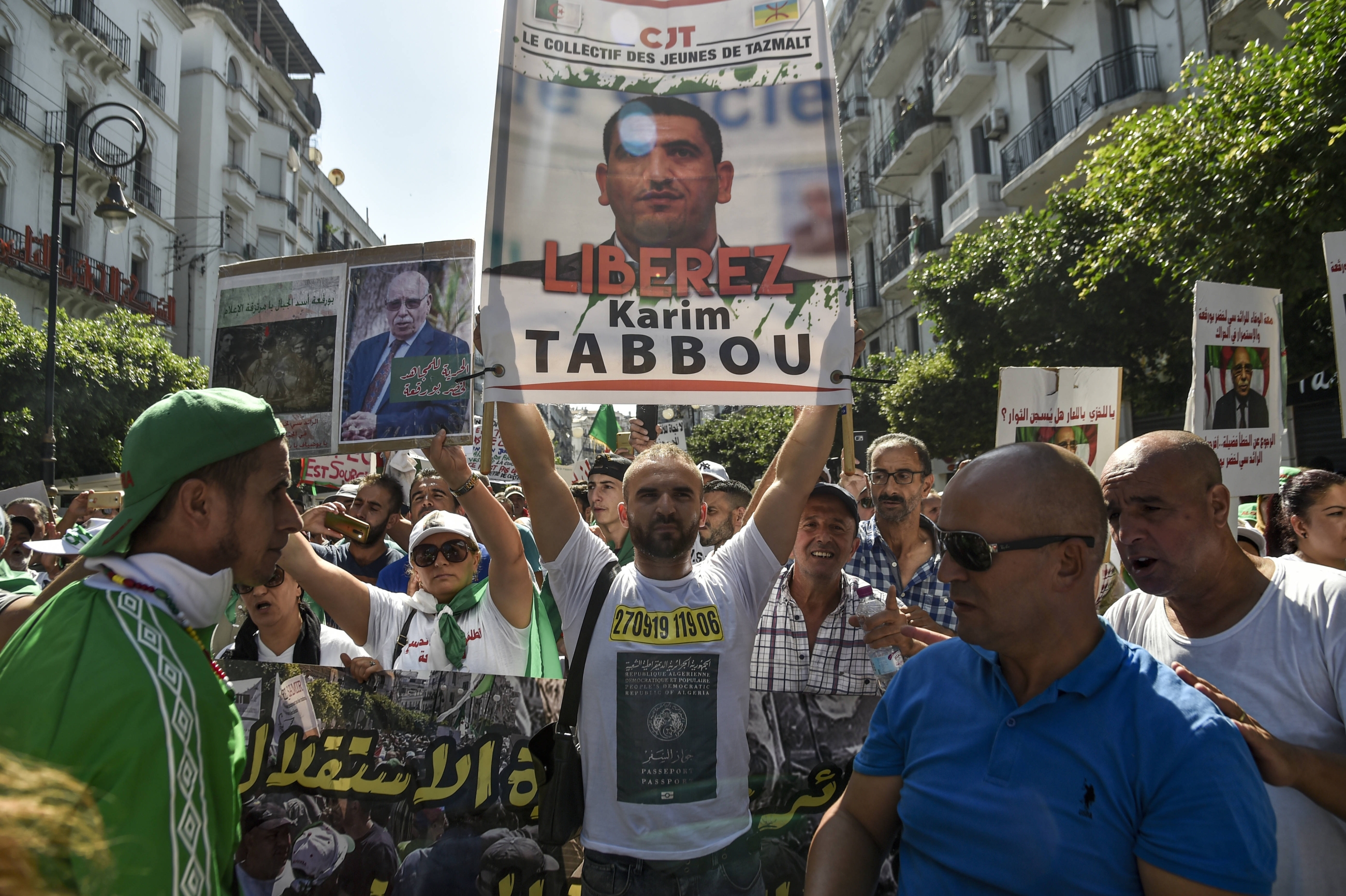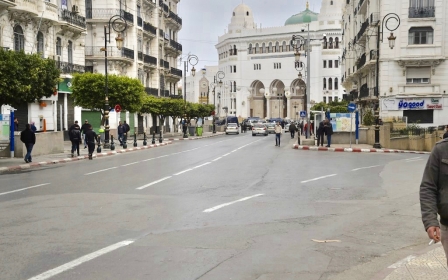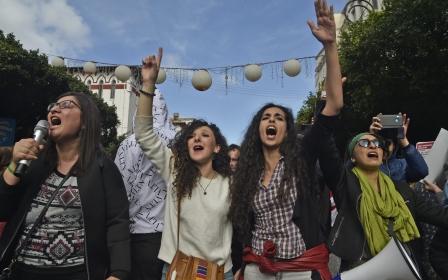Prominent Algerian activist scheduled for release but sentenced to a year in prison

A prominent Algerian political activist and opposition figure has been sentenced to one year in prison, despite his release being scheduled for later this week.
Karim Tabbou, who appeared in front of a judge in the Court of Algiers for an appeal trial that his lawyers were not informed of, reportedly fainted during the proceedings after his request for the trial to be postponed was denied and was ushered out.
Tabbou, 46, who suffers from serious health problems exacerbated by his detention in solitary confinement, was sentenced in absentia.
The process of sentencing was a move “unprecedented in the history of Algerian justice” and marks a "dangerous slide backwards" for Algeria’s judiciary, his lawyers said.
“How can you judge a person who has just had a stroke, who cannot speak, who is half paralysed? Their intention is to wear him out in prison,” his legal representatives said.
New MEE newsletter: Jerusalem Dispatch
Sign up to get the latest insights and analysis on Israel-Palestine, alongside Turkey Unpacked and other MEE newsletters
Tabbou, who has been in prison since September, was scheduled to be released on 26 March, after serving six months of the one-year sentence he was handed on 11 March.
During his recent court appearance, Tabbou wore a bandage around his head and walked with a limp, after the van transporting him from prison had been involved in a road accident.
Silenced voice
Founder of the Democratic and Social Union, Tabbou has been a leading voice behind the anti-corruption protest movement which began on 22 February after ailing President Abdelaziz Bouteflika announced plans to run for a fifth term in office.
He was first arrested at his home on 11 September by plainclothes officers and detained in Kolea prison on charges of “undermining the integrity of the national territory” and “incitement to acts of violence likely to undermine national unity”.
He was released on 25 September, but was rearrested the next day on new charges.
The trial for the first case against him was scheduled to take place on Monday in a court in the city of Kolea, but was postponed to 6 April.
'It will certainly increase his [Tabbou's] popularity but the cost will be significant'
- Zine Labidine Ghebouli
“There seems to be a certain political willingness within the system to maintain a firm stand over the detainees' issue,” Zine Labidine Ghebouli, a contributor to the Washington Institute for Near East Policy, told Middle East Eye.
“I am afraid the consequences will certainly be difficult for Tabbou as his health condition remains to be seen. It will certainly increase his popularity but the cost will be significant.”
Algerian President Abdelmadjid Tebboune pardoned 10,000 prisoners last month as part of a clemency process seen by some as a goodwill gesture to help establish dialogue with Algeria’s protest movement. However, the pardon was not extended to Tabbou and a number of other political activists.
Hundreds of activists and protesters have been arrested since June 2019 as part of measures by authorities to quell the protest movement.
Last week, Tabbou joined calls imploring Algerians to remain at home and to suspend the weekly protests to help limit the spread of the coronavirus that has so far killed at least 17 people in the North African country.
Middle East Eye delivers independent and unrivalled coverage and analysis of the Middle East, North Africa and beyond. To learn more about republishing this content and the associated fees, please fill out this form. More about MEE can be found here.




